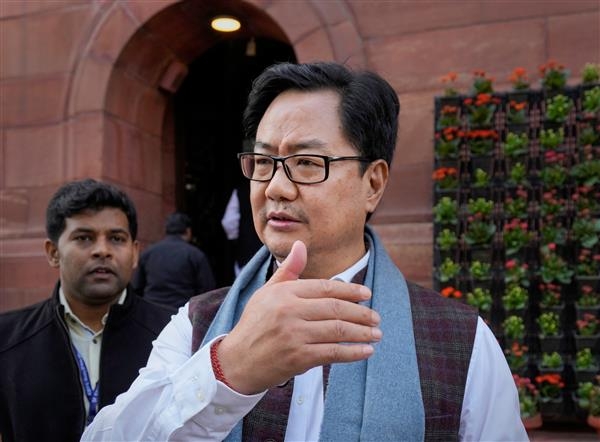Collegium system lacks transparency, objectivity and social diversity, Kiren Rijiju tells Parliament
However, both Acts were challenged in court, and on October 16, 2015, the Supreme Court ruled that both were invalid and unconstitutional. The Constitution (99th Amendment Act of 2014) declared the collegium system to be in effect at that time. In response to a written question in the House, the minister spoke.
Total Views |
New Delhi, December 23: In response to a Rajya Sabha question, law minister Kiren Rijiju stated that the government has received representations from multiple sources about the lack of openness, objectivity, and social diversity in the collegium system.

"Representations from diverse sources on lack of transparency, objectivity and social diversity in the collegium system of appointment of judges to constitutional courts are received from time to time with the request to improve this system," Rijiju said. Adding to the Memorandum of Procedure for the appointment of judges to the SC and HC, the government, according to him, has given suggestions. Judge transfers and appointments are governed by MoP (memorandum of procedure).
Law minister Kiren Rijiju said in Rajya Sabha that the government had implemented the Constitution (99th Amendment) Act, 2014 and the National Judicial Appointments Commission in an effort to make the collegium system "more broad-based, transparent, accountable and bringing objectivity in the system," citing representations from diverse sources that the government had received regarding the need to put in place a better system of appointing judges to the higher judiciary.
However, both Acts were challenged in court, and on October 16, 2015, the Supreme Court ruled that both were invalid and unconstitutional. The Constitution (99th Amendment Act of 2014) declared the collegium system to be in effect at that time. In response to a written question in the House, the minister spoke.
As of December 16, 154 proposals for judge nominations submitted from high courts were being processed by the government and the SC collegium, according to a similar but separate response from Rijiju.
He emphasised that there are still 179 high court openings for which high court collegium recommendations have not been received.

